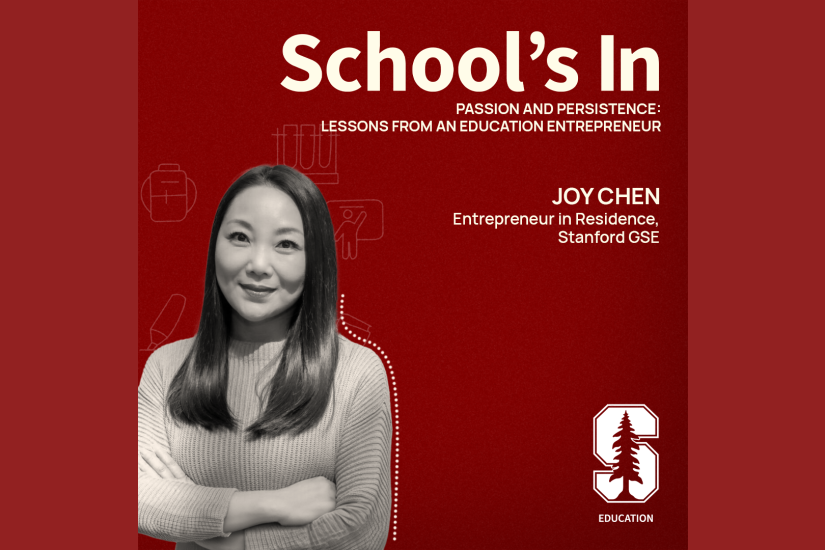
National Science Foundation honors Paulo Blikstein with prestigious CAREER Award
By Brianna Liang
Assistant Professor Paulo Blikstein has been awarded the prestigious Faculty Early Career Development (CAREER) Award by the National Science Foundation.
CAREER awards support junior faculty who exemplify the role of teacher-scholars through outstanding research, excellent education, and the integration of education and research within the context of the mission of their organizations.
Blikstein has been awarded five years of funding for a project aimed at bringing cutting-edge content and inquiry methods from research labs into high schools.
His project, “Bifocal Modeling: A New Framework for the Learning of Advanced Science and Engineering Content in High School,” seeks to advance “hybrid” labs that boost student understanding of scientific concepts by using sensors and computer models connected in real time.
“In today’s science classrooms, we are still stuck in the era of test tubes, which was over 30 years ago,” said Blikstein. “This project will bring to schools cutting-edge methods of science, now done with sensor-enabled experiments that are connected in real time to computer models.”
“Bifocal modeling” uses computers to enhance student skills in interpreting and modeling complex data. Learners build two models of the same phenomenon—a real world model with sensors and a virtual model on the computer, based on their initial hypothesis on how the phenomenon works. Students then connect and run both models simultaneously to investigate and compare the behavior of the models. Based on these differences, they refine their own computer model in real time. This approach is designed to facilitate learning of complex scientific phenomena – and as part of his project, Blikstein has developed a hardware system that costs approximately 30 dollars—less than the average textbook.
In addition, students will have opportunities to learn about the roles of models in science and how to design, construct, and use them.
“The distance between real science and school science has never been greater,” said Blikstein. “We need to close the gap by looking at how scientists work and bringing those practices to schools.”
“The research has the potential to boost motivation and engagement in science, promote students’ scientific reasoning, and generate scientific self-efficacy. One important point, however, is to make it low-cost so that it’s accessible to all children and not just a privileged few. That’s why we want the entire technological platform to cost less than a textbook.”
Blikstein, an assistant professor of Education and (by courtesy) Computer Science, focuses on the design and research of low-cost technologies for science and mathematics learning. He adapts such cutting-edge technologies as computer modeling, robotics, and rapid prototyping to create environments where children in inner-city schools can learn science and mathematics by building sophisticated robotic devices and scientific experiments. He is the creator of FabLab@School, a growing network of digital fabrication labs aimed at boosting interest in STEM fields among K-12 students and undergraduates.



